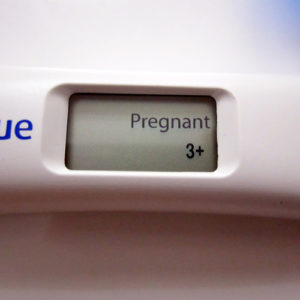Trying to conceive a baby can be an exciting yet stressful time. Knowing when and how often to have sex, which positions work best, and what to do afterwards are common questions for couples attempting to get pregnant. This guide covers the key points to maximise your chances of conceiving.
When Is the Best Time?
Your most fertile days are the four or five leading up to ovulation, when your egg is released, as well as the day itself. This is the prime time to have sex if you want to get pregnant. But knowing exactly when you will ovulate can be tricky if your menstrual cycle length varies.
On average, ovulation occurs around 14 days before the start of your next period. So if your cycle runs between 24 and 30 days, you will likely ovulate sometime between cycle days 10 and 16. There are home ovulation test kits available to detect your fertile window each month. Tracking other ovulation signs like cervical mucus can also help pinpoint your best conception days.
Once an egg is released, it only lives for 12-24 hours. But sperm can survive for several days inside the female reproductive tract. Having sex in the days leading up to ovulation ensures sperm will be there ready and waiting when the egg appears.
How Often Should You Have Sex?
You may think having sex multiple times per day gives you the best odds of getting pregnant. But less can be more when it comes to conception sex. Ejaculating too frequently can actually lower a man’s sperm count. Yet abstaining for longer periods allows sperm to age, potentially affecting their ability to reach and fertilise the egg.
Most experts recommend having sex every other day during your fertile window. This strikes the right balance between ensuring fresh sperm while avoiding overejaculation. Having sex more than once per day is unlikely to improve your chances.
Does Sex Position Matter?
Good news – you do not have to stick solely to man on top or other gravity defying positions when trying for a baby. No studies exist showing one sex position is better than another for conception.
Some believe man on top allows sperm to be deposited closest to the cervix for the shortest swim. And being on the bottom prevents leakage of semen from the vagina. However, due to their speed, sperm will reach their destination in seconds regardless of position. What leaks out after sex is mostly fluid rather than sperm themselves.
So enjoy the full repertoire of sex positions without worrying about impacting your chances. Finding those that allow maximum comfort and pleasure will make the baby-making process more enjoyable.
What Should You Do After Sex?
Some fertility experts advise lying still for up to an hour post-sex with your hips elevated on a pillow. This may allow more sperm to remain pooled around the cervix rather than leaking out.
However, others argue there is little evidence this technique makes any difference. Do whatever feels most comfortable for you.
There are some definite no-nos after conception sex though. Avoid douching, as this can increase risk of pelvic infection. And steer clear of heat sources like hot tubs and long hot baths, as sperm are sensitive to changes in temperature.
Keeping Your Sex Life Fun
Attempting to conceive over several cycles understandably takes the excitement out of sex when planned on schedule. Making conscious effort to keep your intimate times together fun can make the experience more fulfilling.
Introducing sex toys, activities like sensual massage, roleplay scenarios and experimenting with fantasy can all ignite passion. Use lots of foreplay so you become fully aroused. Lubricant can help too but be sure to choose a sperm-friendly variety.
Managing Stress While Trying to Conceive
The process of trying for a baby can become stressful and disheartening when month after month goes by without success. Looking after your mental health is as important as tracking cycles and timing intercourse.
Make time for self-care through activities like yoga, meditation, or meeting friends. Talk openly with your partner about how you are both feeling. Consider seeing a counsellor who specialises in fertility issues if anxiety or low moods persist.
When to Seek Help
Seeking medical advice can be worthwhile if you are under 35 and have not conceived after 6 months of focused trying, or after 12 months if over 35. Common fertility investigations include semen analysis for sperm quality and hormone blood tests for women.
Underlying health conditions, obstructed fallopian tubes, or poor sperm motility are issues that can often be treated. In other cases, assisted conception techniques like IVF may be recommended.
Don’t hesitate to consult your GP if you have any concerns about your fertility or need support on your path to parenthood.
Trying for a baby can be stressful. But knowing the facts around conception sex, like the best timing, positions and practices, will help maximise your chances of success. Most importantly, keep communicating and supporting each other through the highs and lows. Maintaining intimacy, reducing stress, and seeking help when needed will give you the best foundation to create new life together.
Photo by We-Vibe Toys on Unsplash
Zoom Baby is a leading supplier of Pregnancy Tests and Ovulation Test Kits





